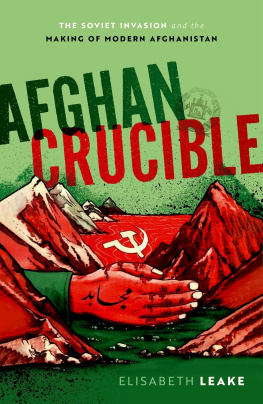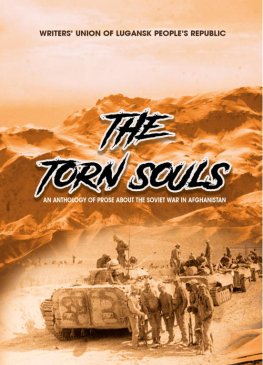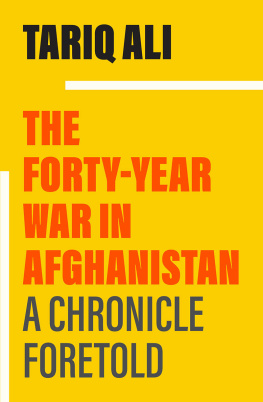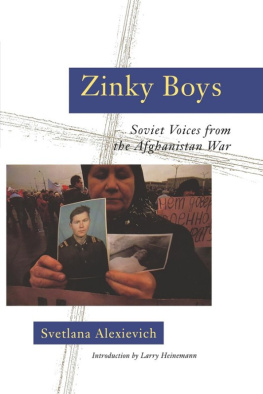Afghan Crucible

Great Clarendon Street, Oxford, OX2 6DP, United Kingdom
Oxford University Press is a department of the University of Oxford. It furthers the Universitys objective of excellence in research, scholarship, and education by publishing worldwide. Oxford is a registered trade mark of Oxford University Press in the UK and in certain other countries
Elisabeth Leake 2022
The moral rights of the author have been asserted
First Edition published in 2022
Impression: 1
All rights reserved. No part of this publication may be reproduced, stored in a retrieval system, or transmitted, in any form or by any means, without the prior permission in writing of Oxford University Press, or as expressly permitted by law, by licence or under terms agreed with the appropriate reprographics rights organization. Enquiries concerning reproduction outside the scope of the above should be sent to the Rights Department, Oxford University Press, at the address above
You must not circulate this work in any other form and you must impose this same condition on any acquirer
Published in the United States of America by Oxford University Press
198 Madison Avenue, New York, NY 10016, United States of America
British Library Cataloguing in Publication Data
Data available
Library of Congress Control Number: 2021948706
ISBN 9780198846017
ebook ISBN 9780192584861
DOI: 10.1093/oso/9780198846017.001.0001
Printed and bound in Great Britain by
Clays Ltd, Elcograf S.p.A.
Links to third party websites are provided by Oxford in good faith and for information only. Oxford disclaims any responsibility for the materials contained in any third party website referenced in this work.
Acknowledgements
Researching and writing a work of history can at times feel like a solitary process, but bringing this project to fruition has truly been a collective effort, one that has been made even more meaningful after eighteen months of working from home during a pandemic. This book would not have been possible without the generosity and support of many friends and colleagues.
The seeds of this project were sown as I was finishing my Ph.D. at Cambridge, when my supervisor, Christopher Bayly, suggested that a study of the Soviet invasion of Afghanistan was the logical sequel to my research on the AfghanPakistan borderlands in the mid-twentieth century. While Chriss passing meant that he never saw any parts of this project, I am forever indebted to his support and I returned frequently to Chriss own writing as I completed the manuscript.
The majority of this project was researched while I was a Leverhulme Early Career Fellow at Royal Holloway, University of London. The Leverhulme Trusts generous funding made much of this books research possible, while the projects intellectual questions began developing with the support of Sarah Ansari and Francis Robinson. Sarah, in particular, has been a model academic mentor, and I strive to live up to her wise, kind, and generous standards. I completed the book after taking up a permanent position at the University of Leeds. I am grateful to the School of History and Faculty of Arts, Humanities, and Cultures for supporting a year of research leave, in which I drafted the manuscript, and special thanks must go to Simon Ball, then our Director of Research, who helped me scrape together the funding for a final research trip to Moscow. At Leeds, I also teach a final-year, year-long seminar on the histories of Afghanistan and Pakistan, and my students enthusiasm for the topic has kept my own interests kindled.
I have benefited from Odd Arne Westads wise counsel since the inception of this project, and his support throughout has been instrumental. Usually during long, wet walks along the Norfolk coastline, accompanied by Tiggy the corgi, Arne pushed me to be ambitious and thorough in my research and writing while also helping me to temper my expectations. He generously read and commented on the entire manuscript and helped me thrash out the broader implications. To say this project would have not come to fruition without Arnes support would be an understatement, and thanks as well to Ingunn Bjornson for her hospitality and patience as Arne and I talked all things Afghanistan and the Cold War.
Special thanks must go to Artemy Kalinovsky, Timothy Nunan, and Benjamin Hopkins. Artemy helped me to navigate the Russian archives (and assuaged my fears about my language skills), provided additional materials and further reading suggestions, and commented on large parts of the manuscript. In conversations over the years, his friendship and own expertise on the Soviet presence in Afghanistan have greatly informed my work. Tim likewise has served as a key interlocutor throughout this projects development. Whether he was inviting me to workshops in Berlin, taking the time to discuss sources and advise on archives, or providing detailed and thoughtful feedback on the manuscript, I have benefited throughout from his generosity and insight. Ben also has been a long-time supporter of this project. Our discussions of Afghan history and ethical research processes have been hugely important, and he, too, read and commented on much of the manuscript.
In August 2020, Cemil Aydin, Jeffrey Byrne, Robert Crews, Daniel Haines, Alessandro Iandolo, and Lydia Walker all kindly took part in a virtual workshop for the project. They offered indispensable feedback on the manuscript, and I was awed and humbled by their generosity of time and thought. I am truly grateful to them and hope I have managed to make the best use of their advice! Other friends and colleagues also have been liberal with their feedback on parts of the manuscript, including Martin Bayly, Amanda Behm, Mark Condos, Sean Fear, Brnice Guyot-Rchard, Will Jackson, Ria Kapoor, Sarah Miller-Davenport, and Robert Rakove. Thanks as well to Simon Fuchs for his suggestions and help with transliterations. So many other friends and colleagues have provided emotional and intellectual support throughout the entirety of this project that it is impossible to name them all: you know who you are, and thank you! Of course, all errors and shortcomings remain my own.
My particular thanks go to the patient and hard-working librarians and archivists at the Afghanistan Center at Kabul University, the Carter and Reagan Presidential Libraries, US, UK, and Indian National Archives, UN and UNHCR archives, and Russian state archives. Thanks as well to my Leeds colleague Robert Hornsby for generously sharing his research from the Russian State Archive of Socio-Political History and to Hayatullah Beyan for his translation work on several mujahidin publications. Finally, special thanks to the Centre of South Asian Studies at the University of Cambridge, where I spent much of my leave writing the book, and particularly to Barbara Roe, Kevin Greenbank, and Rachel Rowe.
Since my undergraduate days, Paul Kennedy has been an unceasing supporter of my work, and it is thanks to him that Andrew Gordon agreed to represent me. Andrew and the David Higham Associates team have been crucial advocates for this project, and Andrew not only provided feedback as the project developed but also pushed me to write in a more accessible way. That this book has found a receptive home at Oxford University Press is due to Andrew and my editor, Luciana OFlaherty. Many thanks to Luciana for her careful reading of the manuscript, as well as to Kizzy Taylor-Richelieu, Nico Parfitt, and the rest of the OUP team.










